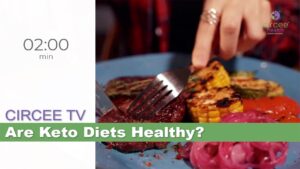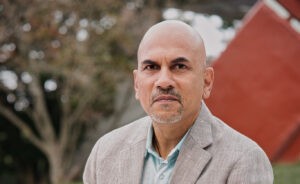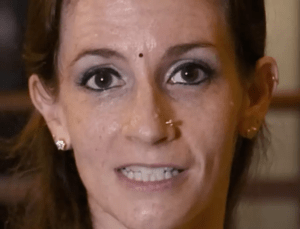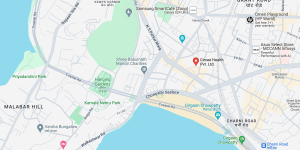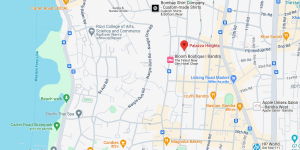Hello, I’m Dr. Jenny Prabhu. I am a Med/Peds doctor- meaning, I’ve been trained in two separate fields: so with me, you get a two-for-one deal- an internist and a pediatrician in one!. Do you have diabetes? I can take care of you! Blood pressure creeping up? Let’s figure out why and how we can treat it. Does your kiddo have a fever or rash? Dr. Jenny can help! Get the idea?
My husband and I are excited to finally realize our dream of moving to Mumbai, India and opening a scientific-evidence based wellness clinic. Unfortunately, a very untimely global pandemic has delayed our plans, so we have decided to get a head start and do some virtual education.
Now, to move on to the crux of this video. For the past 8 years I’ve practiced ‘primary care’ medicine- meaning, I and my colleagues are on the front lines in recognizing disease processes early, *and* in preventing disease in the first place. Over the past few months, I’ve been lucky enough to be able to still “see” my patients via telemedicine. I’ve used this time of quarantine and sheltering in place to emphasize introspection and the importance of preventative medicine to my patients. Hopefully, after watching this video, you too will be able to absorb some of this knowledge and put it into your daily routine. After all, who wants to come out of this pandemic with an extra “covid 19” ??
GETTING PAST THAT MENTAL BARRIER
Probably the biggest concern that I’m hearing from my patients is that they’re feeling “bored”, “depressed”, “in a rut”, “emotionally eating”, etc. I absolutely understand. Being in the same house with the same people (or alone!), with no end point and, in most cases, not much of an agenda, can be very monotonous and frustrating.
So, it is important to train the mind to move past this mental block and look for new opportunities. Use this time to exercise your brain in new ways. Just like the body needs exercise to feel good, so does your brain. Staring at your phone or the TV, although easy, is not the answer. Set your alarm 2-3x a day to do something different. Read a book. Try a puzzle. Play a game with your family. Have a zoom meeting with your friends. Learn how to do something new- painting, drawing, even attempt a new language! Thanks to the pandemic, there are a plethora of free instructional videos available. One thing I keep reminding my patients is- aren’t we fortunate to have technology and social media! Can you imagine this happening 20 even 10 years ago? No FaceTime, no Youtube! Oh, the horror
On the subject of your mind- I understand that despite the advice to exercise the mind, some folks just won’t be able to get themselves to do it. This is where situational anxiety and depression can come into play. I have seen it in many of my patients who normally don’t have these issues. In this case- there are still many useful tools to help pull them out. Again, plugging into new technologies that are available- free meditation Apps, even just 5-10 minutes a day will make a huge difference over time. Yoga classes online. Reaching out to close friends with a phone call. Depending on how you feel about the subject- listen to spiritual discourses, songs, pray, make it a habit to think about God or whatever higher power you may believe in, and how that, gives you inner strength. Consider trying out volunteering [once it is safe to do so]- at a soup kitchen, an animal shelter, a nursing home, whatever your interest may be. You’ll be surprised how helping others/the greater good, boosts *your* morale. And finally, virtual therapy sessions with a psychologist can be especially healing. It’s most important to realize that you are not alone in this. Help is out there, even if it’s virtual!
HOME IS NOT JUST FOR SLEEPING AND LOUNGING
Let’s talk now about healing and strengthening the body. As many of us are used to working long hours and relaxing when we get home, it’s a difficult transition to make our home into something other than only a place to rest. The first, and simplest step, is to stand up and get moving. As many of you know, COVID often attacks the lungs — my pulmonologist friends have told me time and time again, if you want to avoid lung disease, your lungs should be their healthiest at baseline (that is, in day to day activities). So now, while you’re feeling well, use this newfound extra time to exercise those lungs and prepare them to fight [which hopefully they won’t have to do!]. A simple daily 30-45 minute walk, whether on your treadmill or outside, does wonders for your lungs. Of course, if you are able to, jogging is even better. Get your kids involved- jump rope, hula hoops, hopscotch, this can be fun for adults too! Plus, it will make them (and you) sleep well at night. While the weather is nice, get outside and get active (in the morning or evening if it’s too hot where you live). Your lungs will thank you!
COVID also affects the blood vessels, in ways we aren’t entirely sure of yet. What we do know, is that blood clots have been found even in young and previously healthy patients. So, here is another opportunity to change your baseline. Just like you can exercise your lungs, did you know that you can exercise your blood vessels? If you’ve ever taken an international flight, you might see on the TV screens, periodic reminders to get up and move around- to prevent blood clots in the legs [where they often originate]. Well, consider this pandemic a lonnnnnnggg plane flight. If you’re sitting on the couch reading a book, make sure you stand up every 15-20 minutes and walk around- heck, set an alarm on your phone to remind you. Go for a drink of water, do some stretches. If you’re watching your favorite TV show, do jumping jacks or run in place during the commercial breaks. Wake your muscles up and get the blood flow going. Stagnant blood is unhappy blood.
WATCH WHAT (AND HOW MUCH) YOU PUT IN YOUR MOUTH
Since I’ve been focusing on exercising various parts of your body, let’s talk about keeping your digestive system healthy and active. In our opinion, nutrition is probably one of the most important factors in staying healthy and preventing disease. I’ve noticed in my own home, that cooking is even more challenging now with limited ingredients and limited supply. My husband and I have taken this opportunity to learn new cuisines, and creative ways of getting around the lockdown-related limitations. For example, I love baking, but yeast has been in short supply. So, I’m in the process of making my very own sourdough starter (named Sally, by my 7 year old). Make lemonade out of lemons!
What foods should you try to eat to stay healthy? I could go on for hours about this, and I probably will, in subsequent videos. For now, I will simply say, try to keep it mostly whole foods plant based. What does this term mean? Let’s break it down– whole foods are those that have not been processed (fruits, veggies, beans, whole grains, etc). And plant based- means no animal products (no meat, no dairy). Now, I’m not asking you to drop everything and become vegan (vegans can be unhealthy too- oreos and potato chips are vegan!), but just asking you to try to incorporate more of these foods into your diet. If fresh fruits and veggies aren’t available, check for frozen or canned. Try meatless monday! Or meatless thursday dinner! Even trying to change one meal a week can make a huge difference to your body. I promise you will notice it. I absolutely understand that during home quarantine it is easy to focus on comfort foods (usually refined carbs, cheesy, oily). Just try to limit these to 1-2x a week at the most. Don’t completely deny yourself.
Speaking of denying… another simple (but not easy) technique that I do myself, and often recommend to patients, is Intermittent Fasting. Just like you can take this time to learn a new hobby, you could consider learning this unique and very healthy lifestyle change. I do plan to go more in depth about IF in other videos, as it has done wonders for me. IF not only keeps your GI tract happy, but it has other benefits, including improving your mood, and reducing inflammation (remember- covid does much of its damage by inducing a huge inflammatory response). Here, i’ll say it again, let’s work on *changing your baseline*. If your baseline level of inflammation is lower (from IF or a WFPB diet), then it will be more difficult for your body to succumb to covid!
SUPPLEMENTS
In the doctoring world, supplements have always been a big subject of controversy. Straight out of medical school, I was very much against any supplement unless the patient had a documented deficiency. That was then, but now, after educating myself, I do think certain supplements can be helpful. Once the covid forest fire started spreading, we decided to look into research studies regarding supplements that could potentially have an antiviral effect. The first hit in our search was Quercitin- which was used with some success in the Ebola and SARS (the first sars!) pandemic. Vitamin C has always been known to boost immunity but it’s particularly helpful with viral illnesses (like the common cold!). Zinc as well, and many docs have seen success with zinc even in hospitalized covid patients. Now, these next two are somewhat questionable – meaning, they are good for *prevention* of illness but should probably not be used in someone that has already been diagnosed with covid. Elderberry and vitamin D. (Some small studies showed that they may cause a heightened cytokine flare, which is one of the mechanisms of severe illness in covid). I also always recommend vitamin B12 for my patients that are vegan.
CONCLUSION
Well, I hope some of these tidbits made sense to you and my wish is that even if you remember just one thing from my video, that it helps you feel better during this difficult time. I certainly wouldn’t expect all these changes to happen overnight, but, well, you certainly have the time to gradually incorporate them into your lifestyle. Even better, keep them going after this is all over! After all, prevention is the best medicine.
LINKS TO TOPICS MENTIONED IN THE VIDEO
Supplements:
Vitamin D: 2500 – 5000 IU/day
Vitamin B12: 500 – 1000 ug/day
Vitamin C: 500 – 1000 mg/day
Zinc: 30 – 50 mg/day
Melatonin: 1-6mg/ day bedtime
Quercetin: 500mg twice a day


